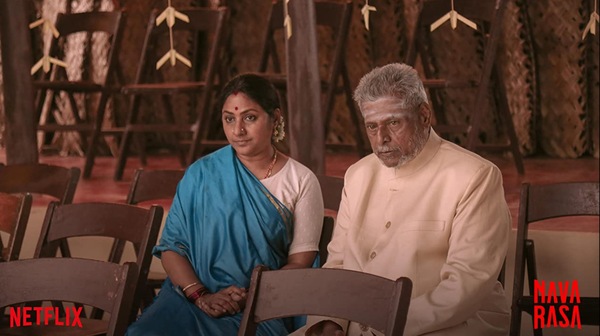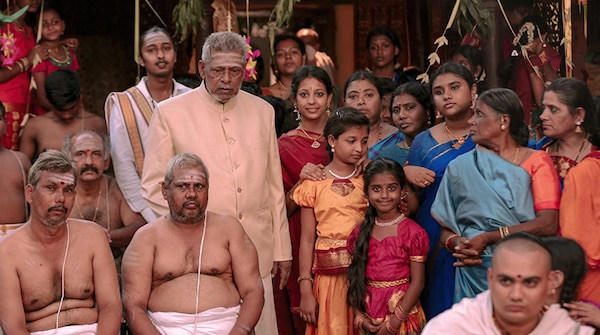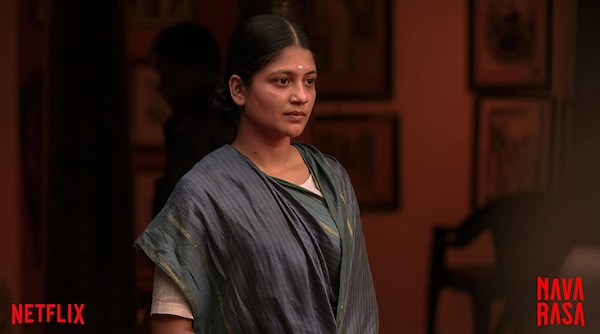Payasam Review - Navarasa: Delhi Ganesh powers through an atmospheric, layered short by Vasanth S Sai
The short marks Vasanth Sai's return to direction after a five-year-long sabbatical

Last Updated: 07.15 PM, Aug 07, 2021
Payasam, exploring the bheebhatsa rasa (disgust) in the Navarasa anthology (streaming on Netflix), is a classic case of an underdog triumphing against all odds. Though spectators had no doubt about the potential of its lead actors - veterans like Delhi Ganesh, Rohini Molleti and the promising Aditi Balan - and knew that its filmmaker Vasanth S Sai was a capable storyteller, not many gave it a chance in comparison to shorts involving names like Gautham Menon, Karthik Subbaraj and other established stars in the tinsel town. That's indeed the beauty of cinema and storytelling. You can't write anyone off.
The short, based on T Janakiraman's story, is set amidst the sleepy backdrop of Kumbakonam in the mid-1960s with the untitled lead character played by Delhi Ganesh, visibly insecure about having no identity in his town beyond his popular, good-at-heart nephew Subbu. Subbu's daughter is entering wedlock but the patriarch of the house is hardly happy for his nephew. He does his best to delay the inevitable and skip the wedding. Years of pent up frustration and insecurity heighten on the same day, so much that he doesn't mind admitting, 'I don't care what happens to me but I don't wish well for him.' How does Payasam come into the picture?

The script is taut and yet multi-layered. It gives you a peek into the man that Delhi Ganesh was in the past and helps you draw a parallel to what he has become. The lead character isn't only livid with his nephew but also is frustrated with his fate. He has lost his wife many years ago, the only emotional anchor in his life, while his daughter was widowed barely three months into her marriage recently. His nephew Subbu, meanwhile, has had a great professional career, leading a stable personal life and is a content man at heart. Subbu becomes a mere outlet for Delhi Ganesh to vent out and direct his disgust and bitterness.
More than bheebhatsa, Payasam could be seen as an exploration of karma, where the wife's character is used as Delhi Ganesh's alter ego. The ending is quite apt - it doesn't try to force any dramatic changes in the character graph. The dialogue is largely minimalistic, you're dying to know the widowed daughter's backstory merely through her empty, sometimes hopeful stares. The short, visually too, draws you into the story with its attention to detail (the jadai-extensions to the bride, the impromptu conversations with the priests, unexpected guests), the stunning sepia-tinted cinematography makes you want to go back in time to attend the wedding in the story.

Just like how filmmaker Ashwin Saravanan pointed out, Payasam is a short that would've made Vasanth's master, K Balachander proud. The drama is understated and this also works well for a new generation to discover Vasanth Sai as a filmmaker. Delhi Ganesh is the sole reason why a viewer is able to dig deep into the many nuances of the story effortlessly. Aditi Balan is choosing her roles wisely in a bid to avoid being stereotyped. Rohini plays the 'maami' to perfection too. Watch Payasam with an open mind and it is sure to leave you enriched.
Also read - Navarasa Review

